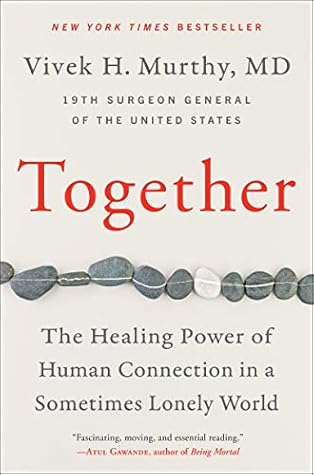More on this book
Community
Kindle Notes & Highlights
Help and be helped. Service is a form of human connection that reminds us of our value and purpose in life. Giving and receiving, both, strengthen our social bonds—checking on a neighbor, seeking advice, even just offering a smile to a stranger six feet away, all can make us stronger.
truly listen, you have to meet people where they are, emotionally and physically, however long that takes.
When people feel they belong to one another, their lives are stronger, richer, and more joyful.
“Never go through life saying you should have,”
People who are more extroverted tend to crave human contact and social activity, feeling energized by networking with strangers.
Particularly in hospitals, patients may feel that they’re reduced to their illness—a problem to be diagnosed and treated rather than a person with hopes, yearnings, dreads, and a terrifyingly immediate need for solace. The pain of this experience also can extend to patients’ loved ones.
stop asking what’s the matter with the patient and start asking what matters to them.”
Helping patients and their families feel known, helping them feel seen and loved, is perhaps the most powerful medicine we have.
takotsubo syndrome.
never wanted to kill myself. I just wanted to stop feeling, to stop having to deal with life really.”
The overlap between physical and emotional pain in the brain sheds light on why people may reach for more powerful and dangerous substances—like opioid painkillers and alcohol—when they experience emotional pain from loneliness.
Call it a clan, call it a network, call it a tribe, call it a family. Whatever you call it, whoever you are, you need one. You need one because you are human. —Jane Howard, Families


